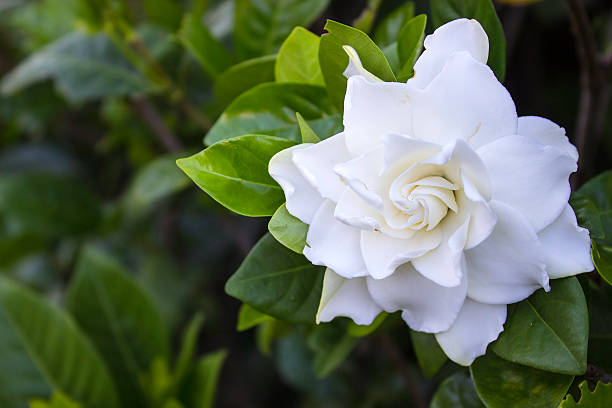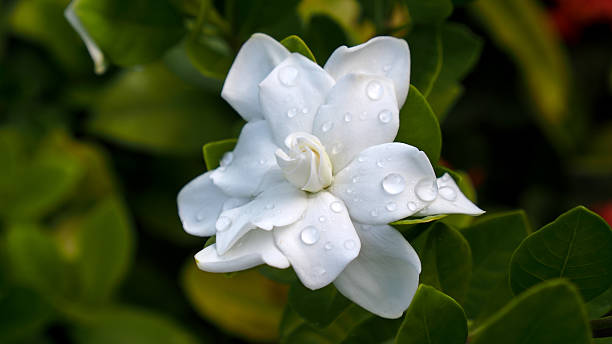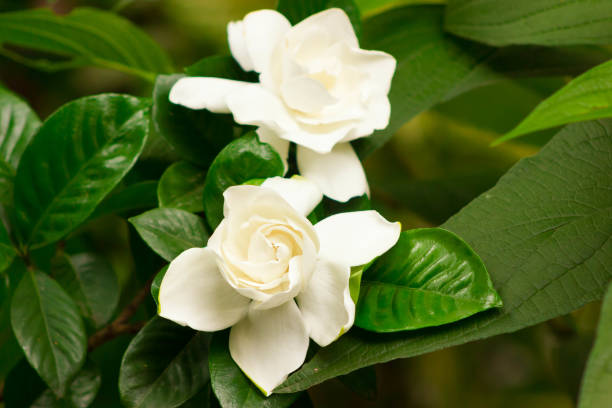Do Gardenia Plants Like Coffee Grounds?
There are a lot of different opinions about coffee grounds. According to some sources, the coffee ground is an excellent substitute for fertilizer for acid-loving plants and can kill/repel a wide range of pests. Others argue that coffee will harm your plants while destroying beneficial microorganisms and decomposers. Find out in this article about coffee grounds and how they can benefit you.

Table of Contents
Facts About Coffee Grounds
Coffee grounds are the waste products that come from grinding coffee beans. They’re made up of water, oils, and solids (including carbon). Here are some facts about coffee grounds you may not know:
- Coffee grounds are acidic, with a ph level of 6.2. It’s better to apply them for acid-loving plants. Coffee grounds can be an excellent fertilizer substitute for acid-loving plants such as gardenias when used as directed.
- Coffee grounds have a low nitrogen content compared to commercial fertilizers. They are rated at 2% nitrogen by content, and this nitrogen nourishes microbes rather than your plants.
- Coffee grounds are high in potassium. They can help regulate soil moisture and provide support for root growth.
- Coffee grounds have a low phosphorus concentration, so they’re not recommendable for plants that need high levels of phosphorus to thrive.
- Weeds can be stunted and prevented from sprouting by using coffee grounds, which can decrease the amount of physical weeding required.
- The presence of coffee grounds deters slugs and snails.
- Besides providing organic materials, they will also aid in improving aeration.

What Are the Benefits of Adding Coffee Grounds to My Gardenia Plants?
Adding coffee grounds to your gardenia plants can provide a few benefits:
- They are high in potassium which helps regulate soil moisture and support root growth.
- Their low nitrogen content makes them an excellent fertilizer substitute for acid-loving plants such as gardenias.
- Their acidic pH will help kill fungus and other pests that may be attacking your gardenia plants.
- Coffee grounds have several physical properties that can improve the overall health of your gardenia plants, such as their ability to deter weeds and pests.
- Worms, especially those in worm bins, will benefit as long as you add an adequate carbon material rate with the grounds.
When to Add Coffee Grounds to My Gardenia Plants?
Adding coffee grounds to your gardenia plants can be done at any time. They have a low nitrogen content, so they are not as beneficial when used in large amounts, but they can provide significant physical and chemical benefits over the long term.

How Do You Fertilize Gardenias With Coffee Grounds?
Please keep in mind that they are not an alternative for fertilizer but can supplement feedings and boost useful microbes that would normally feed off of fertilizer.
Applying Coffee Grounds Directly to the Soil
To use the coffee grounds as mulch, you can spoon them straight onto the soil surrounding your plant’s roots. Adding organic wastes, leaves, or mulch to the soil’s surface can aid in the retention of moisture and the speeding up of the composting process of the organic matter you have chosen.
Applying as Compost
Compost your gardenia’s roots by mixing equal quantities of ground coffee, grass cuttings, and foliage to keep them warm. As a bonus, you may improve the potency and effectiveness of your compost pile by adding the coffee grounds to it, together with the paper coffee screens or an equal amount of leafy matter.
Applying as a Liquid Fertilizer
If you want to apply coffee grounds as liquid fertilizer, add 2 cups of ground coffee to 5 gallons of water. Mix well, and then spray the solution onto your gardenia plants.
To summarize, coffee grounds can be used as mulch to retain moisture and improve composting in the soil. Adding organic wastes, leaves, or mulch to the soil’s surface can aid in this process. Coffee grounds can also be added directly to your gardenia’s soil, mixed with other organic matter, and then applied through irrigation systems. Alternatively, compost them with grass trimmings and foliage if you want to boost their strength and effectiveness. Finally, you can also use coffee grounds as a liquid fertilizer on your plants.
